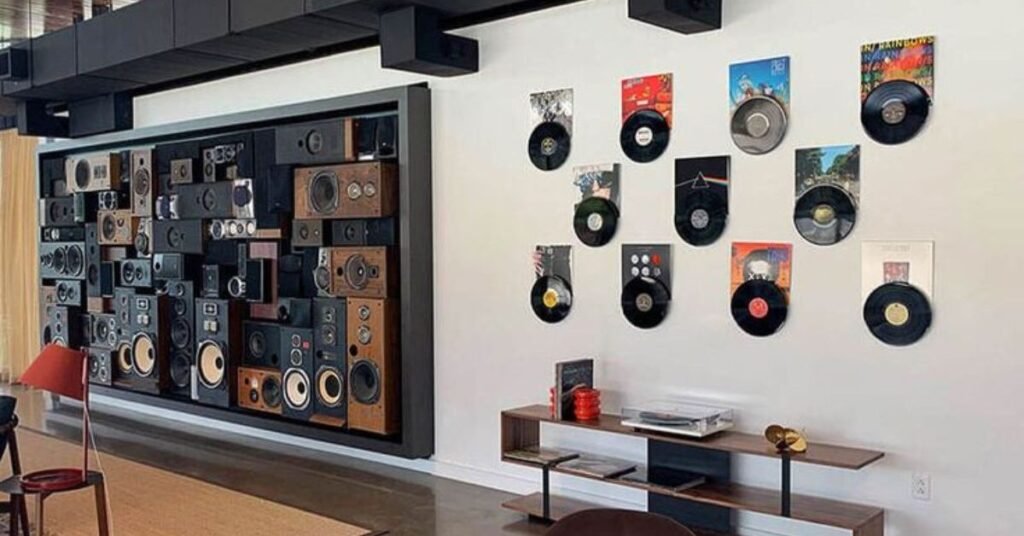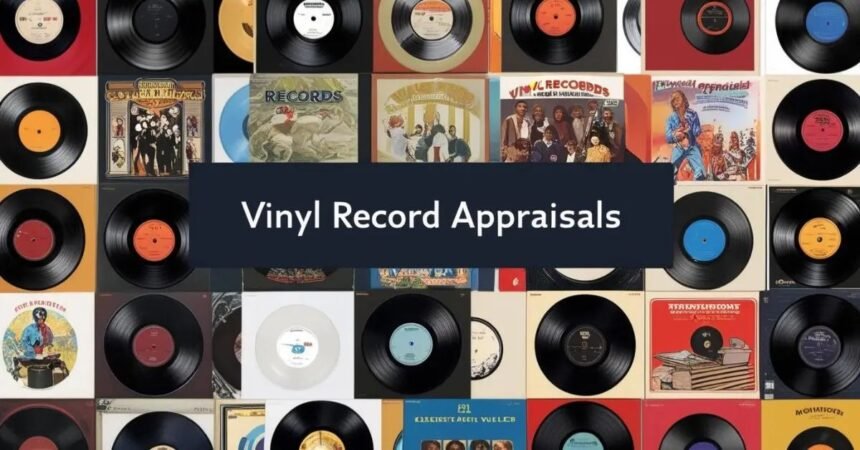Introduction
The world of vinyl records has experienced a remarkable resurgence in recent years. With vinyl enthusiasts and collectors driving a new wave of interest, understanding the value of vintage records has become increasingly important. Vinyl record appraisals are essential for collectors, sellers, and even music lovers looking to determine the worth of their collections. Whether you’re selling records, adding to a collection, or just curious about their value, knowing how appraisals work can help you make informed decisions.
In this article, we will explore what vinyl record appraisals involve, why they are crucial, and how they are applied in real-world scenarios. You’ll also learn about common challenges and how to overcome them, helping you get the most out of your vinyl collection.
Detailed Explanation of Key Concepts
What Are Vinyl Record Appraisals?
A vinyl record appraisal is the process of evaluating a vinyl record’s market value based on a variety of factors, such as condition, rarity, demand, and historical significance. Appraisals provide a benchmark for determining what a record is worth, whether it’s being sold, traded, or insured. These evaluations are often carried out by professionals with a deep understanding of the music industry and collectible markets.
Factors That Influence Vinyl Record Value
Several key factors influence the value of a vinyl record:
- Condition: A record’s physical state is crucial. The condition of the vinyl itself, the sleeve, and any inserts (such as posters or lyric sheets) will significantly impact its value.
- Rarity: Limited pressings or rare releases are highly valued in the collector’s market. First pressings, international versions, or promotional records often fetch higher prices.
- Artist and Genre: Popular artists or significant albums tend to hold more value. Records by legendary bands like The Beatles or The Rolling Stones can be worth far more than lesser-known acts.
- Historical Significance: Records that played a major role in music history, or were released at pivotal moments, often carry higher value due to their cultural impact.
- Demand: The current market demand for certain records fluctuates based on trends, artist revivals, or anniversaries of iconic albums. Higher demand typically leads to a higher appraisal value.
How Vinyl Records Are Appraised
The appraisal process involves a combination of expert knowledge and market analysis. Professional appraisers often start by inspecting the condition of the record and its packaging, checking for any scratches, warping, or sleeve damage. They will also consider the pressing, label, and catalog number to determine if the record is a rare edition or part of a limited release.
Once these physical aspects are evaluated, appraisers assess market trends to estimate current demand for the record. Online platforms like eBay, Discogs, and specialized auction houses provide data on recent sales of similar records, which appraisers use to finalize their estimates.
Importance and Benefits of Vinyl Record Appraisals
Why Vinyl Record Appraisals Are Important
Appraisals are essential for anyone involved in vinyl collecting or sales. Whether you’re looking to sell a record or add to your collection, understanding its value is critical to making informed financial decisions. Appraisals help protect collectors from overpaying for records or undervaluing them when selling.
In addition, vinyl record appraisals can assist with estate planning, insurance purposes, and tax deductions for charitable donations. Accurate appraisals ensure you’re receiving the correct amount for any record-related transactions.
Benefits for Collectors
For collectors, appraisals offer several important benefits:
- Informed Purchasing: Knowing the value of a record allows you to make more educated purchasing decisions, avoiding overpriced or falsely advertised records.
- Protection: Appraisals provide protection in case of damage or theft. Accurate documentation of a record’s worth can help with insurance claims.
- Historical Insight: Appraisals often provide additional information about a record’s history, rarity, and cultural significance, deepening your appreciation for your collection.
Benefits for Sellers
If you’re selling records, an appraisal can help ensure you receive fair market value. Sellers often use appraisals to set starting prices for auctions or direct sales. Appraisals also add credibility to sales listings, giving buyers confidence that they’re paying a fair price for a properly evaluated item.
Applications and Use Cases of Vinyl Record Appraisals
Buying and Selling Vinyl Records
The most common application of vinyl record appraisals is in the buying and selling process. Whether through online marketplaces like Discogs and eBay or at record fairs, having a solid appraisal ensures that both buyers and sellers are engaging in fair transactions. When negotiating, an accurate appraisal can be the deciding factor between agreeing on a price or walking away from a deal.
Insuring a Vinyl Collection
Many collectors invest in vinyl insurance to protect their collections from theft, fire, or accidental damage. In these cases, appraisals are necessary to establish the worth of the collection. Insurance companies require appraisals to determine the policy coverage amount. Additionally, appraisals help ensure that claims for lost or damaged records are appropriately compensated.
Estate Planning and Inheritance
Vinyl record collections are often passed down through generations. When a collector dies, their collection can hold both sentimental and monetary value. Appraisals provide clear documentation of a collection’s worth, helping family members make informed decisions about inheritance or the sale of records.
Donations and Tax Deductions
If you choose to donate your vinyl records to a museum, library, or charity, you may be eligible for a tax deduction based on the collection’s appraised value. Appraisals in these cases are essential for determining the correct tax write-off amount. Accurate evaluations ensure compliance with tax regulations and can provide a significant financial benefit.
Auctions and Specialty Sales
Vinyl record auctions are a popular way for rare and valuable records to change hands. Sellers often seek appraisals before entering their records into an auction to establish a realistic starting price. Auction houses may also appraise records themselves to ensure accurate pricing for their clients. Specialized sales, including limited-edition or highly sought-after records, often depend on these appraisals to guide buyers in making high-value purchases.

Challenges and Solutions in Vinyl Record Appraisals
Challenge 1: Variability in Condition Grading
One of the main challenges in vinyl record appraisals is grading a record’s condition accurately. Terms like “Mint,” “Near Mint,” or “Very Good” are subjective and can vary between sellers. A seller’s “Near Mint” might be a buyer’s “Very Good,” leading to disagreements over price.
Solution: Standardized Grading
To overcome this, many appraisers follow standardized grading systems like the Goldmine Grading Guide. This system provides a clear, widely-accepted set of definitions for each condition grade, helping appraisers and sellers stay consistent. Buyers are also more likely to trust appraisals when they are based on established criteria.
Challenge 2: Difficulty in Verifying Rarity
Determining the rarity of a vinyl record can be difficult, especially if detailed information about the pressing is scarce. Without proper documentation, it can be challenging to establish whether a record is truly rare or just old.
Solution: Research and Expert Consultation
Professional appraisers often have access to extensive databases and networks that can verify the rarity of a record. Online resources like Discogs, combined with expert knowledge of labels, catalog numbers, and pressings, help provide accurate assessments of rarity. In some cases, consulting with music historians or other collectors may also provide insights.
Challenge 3: Market Fluctuations
The value of a vinyl record can fluctuate based on market trends, artist popularity, or external factors such as anniversaries or artist reissues. A record appraised at a high value today may lose value if demand drops, leading to potential miscalculations.
Solution: Timely Appraisals
One solution is to ensure that appraisals are conducted close to the point of sale. Regular reappraisals help keep a collection’s value current, especially if you plan to sell or insure your records. Appraisers also keep track of market trends to provide realistic estimates based on the latest sales data.
Challenge 4: Misconceptions About Vinyl Age
A common misconception is that old records are automatically valuable. Age alone does not determine worth. Many older records were mass-produced and hold little value unless they meet other criteria like rarity or demand.
Solution: Educating Collectors
Collectors need to be educated about the factors that contribute to a record’s value. Appraisers can provide insight into why certain records hold value while others do not, helping to dispel the myth that age alone makes a record valuable.
Conclusion
Vinyl record appraisals are an essential part of the collecting and selling process, offering valuable insights into the worth of individual records or entire collections. Whether you’re a seasoned collector or a novice, understanding how appraisals work can help you make informed decisions, protect your investments, and appreciate your collection more fully.
By evaluating key factors like condition, rarity, and market demand, appraisers provide accurate assessments that benefit both buyers and sellers. As vinyl continues to grow in popularity, the importance of professional appraisals cannot be overstated. If you own a collection or are considering buying or selling records, a professional appraisal could be your best resource.
FAQs
1. How do I get a vinyl record appraised?
You can contact a professional appraiser who specializes in vinyl records, or use online platforms like Discogs to gauge current market prices. In-person appraisals are ideal for high-value collections.
2. What is the Goldmine Grading Guide?
The Goldmine Grading Guide is a widely accepted system for grading the condition of vinyl records, providing standard definitions to reduce subjectivity.
3. How often should I get my collection appraised?
It’s advisable to get your collection appraised every few years or whenever you plan to sell or insure it. Regular reappraisals keep your collection’s value up-to-date with market trends.
4. Are all old records valuable?
Not necessarily. A record’s value depends on factors like rarity, demand, and condition.
5. Can I appraise vinyl records myself?
While online resources can provide general price estimates, professional appraisals offer more accurate evaluations, especially for rare or high-value records. A trained appraiser can identify factors you might overlook.




